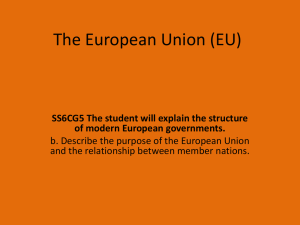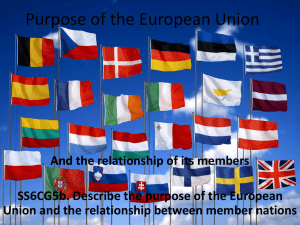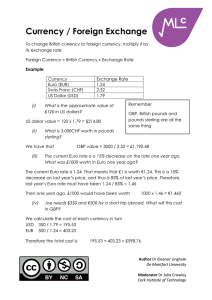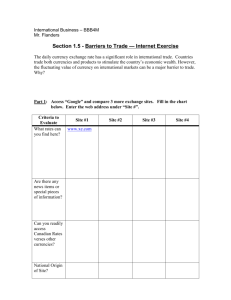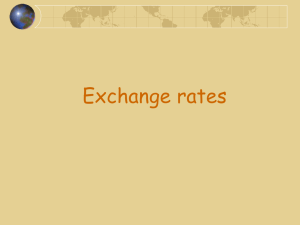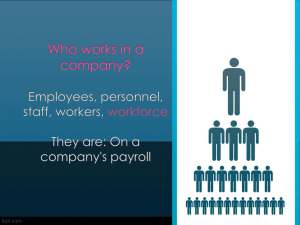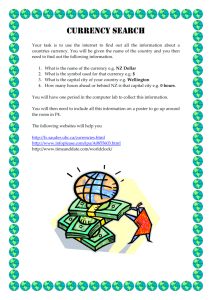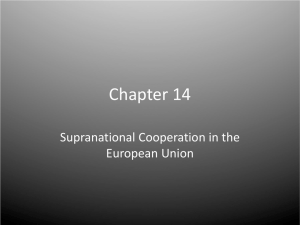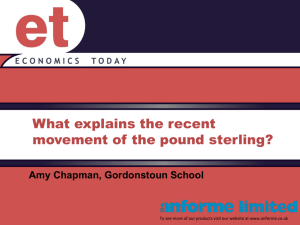Dollar Weakens Against Euro But Off Lows
advertisement
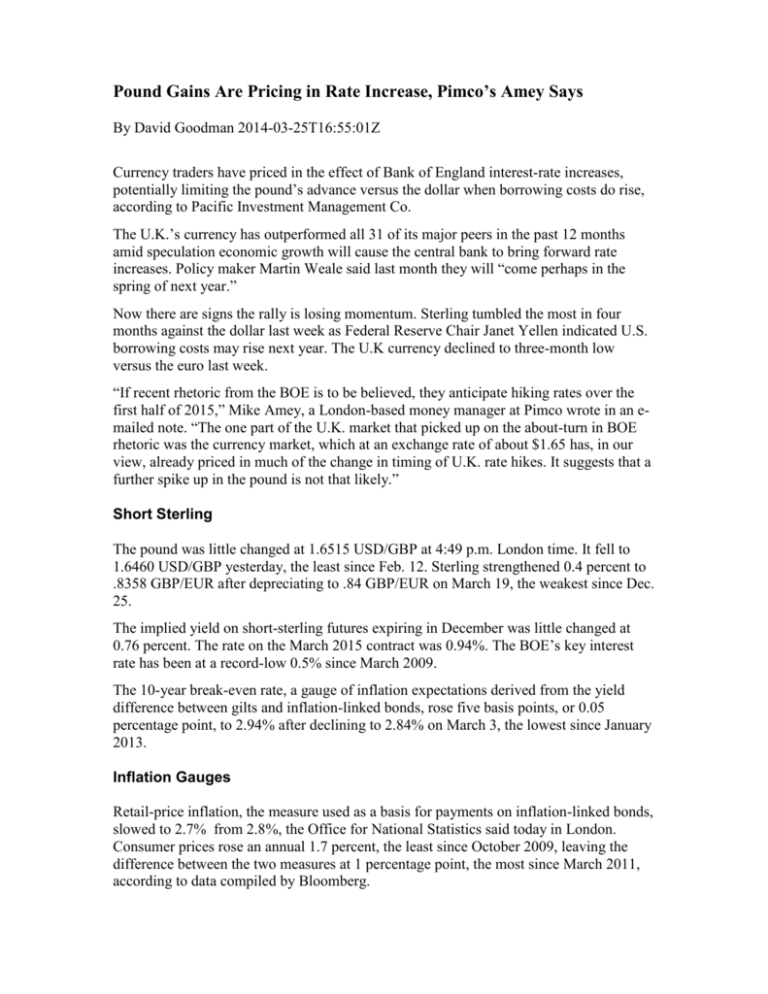
Pound Gains Are Pricing in Rate Increase, Pimco’s Amey Says By David Goodman 2014-03-25T16:55:01Z Currency traders have priced in the effect of Bank of England interest-rate increases, potentially limiting the pound’s advance versus the dollar when borrowing costs do rise, according to Pacific Investment Management Co. The U.K.’s currency has outperformed all 31 of its major peers in the past 12 months amid speculation economic growth will cause the central bank to bring forward rate increases. Policy maker Martin Weale said last month they will “come perhaps in the spring of next year.” Now there are signs the rally is losing momentum. Sterling tumbled the most in four months against the dollar last week as Federal Reserve Chair Janet Yellen indicated U.S. borrowing costs may rise next year. The U.K currency declined to three-month low versus the euro last week. “If recent rhetoric from the BOE is to be believed, they anticipate hiking rates over the first half of 2015,” Mike Amey, a London-based money manager at Pimco wrote in an emailed note. “The one part of the U.K. market that picked up on the about-turn in BOE rhetoric was the currency market, which at an exchange rate of about $1.65 has, in our view, already priced in much of the change in timing of U.K. rate hikes. It suggests that a further spike up in the pound is not that likely.” Short Sterling The pound was little changed at 1.6515 USD/GBP at 4:49 p.m. London time. It fell to 1.6460 USD/GBP yesterday, the least since Feb. 12. Sterling strengthened 0.4 percent to .8358 GBP/EUR after depreciating to .84 GBP/EUR on March 19, the weakest since Dec. 25. The implied yield on short-sterling futures expiring in December was little changed at 0.76 percent. The rate on the March 2015 contract was 0.94%. The BOE’s key interest rate has been at a record-low 0.5% since March 2009. The 10-year break-even rate, a gauge of inflation expectations derived from the yield difference between gilts and inflation-linked bonds, rose five basis points, or 0.05 percentage point, to 2.94% after declining to 2.84% on March 3, the lowest since January 2013. Inflation Gauges Retail-price inflation, the measure used as a basis for payments on inflation-linked bonds, slowed to 2.7% from 2.8%, the Office for National Statistics said today in London. Consumer prices rose an annual 1.7 percent, the least since October 2009, leaving the difference between the two measures at 1 percentage point, the most since March 2011, according to data compiled by Bloomberg. Sterling has appreciated 9.7% in the past year, the best performer among 10 developednation currencies tracked by Bloomberg Correlation-Weighted Indexes. The euro gained 8.1% and the dollar was lost 0.2%. The U.K. currency rose for the first time in three days versus the euro after a measure of German business confidence declined, damping demand for the region’s shared currency. The Ifo Institute’s business climate index for Europe’s biggest economy, based on a survey of 7,000 executives, fell to 110.7 in March after increasing to 111.3 the previous month, the highest level since July 2011. Economists surveyed by Bloomberg News predicted a decline to 110.9. The 10-year gilt yield climbed two basis points, or 0.02 percentage point, to 2.71%. The 2.25% bond due in September 2023 fell 0.185, or 1.85 pounds per 1,000-pound face amount, to 96.195. U.K. government bonds returned 2.6% this year through yesterday, according to Bloomberg World Bond Indexes. Treasuries earned 1.6% and German debt gained 2.4%. Euro Weakens The shared currency pared losses versus the dollar as European Central Bank President Mario Draghi didn’t signal additional monetary stimulus. The euro slid earlier as a German report showed business confidence fell more than forecast. Reuters reported European Commission official Antonio Tajani as saying the euro was too strong. Brazil’s real climbed on bets yesterday’s credit-rating cut will be the only one this year. “It seems to be building up a composite story of weaker trend in the business surveys for Germany in March, and that on its own was enough to send euro lower,” Richard Franulovich, chief currency strategist for the northern hemisphere at Westpac Banking Corp., said in a phone interview. “The market got itself very short of euro, and it didn’t quite see the dramatic talking down of the euro by Draghi some might have thought would happen.” A short position is a bet a currency will fall. The 18-nation currency fell 0.1 percent to 1.3825 USD/EUR at 2:57 p.m. New York time after dropping as much as 0.6 percent earlier. It touched 1.3967 USD/EUR on March 13, the highest since October 2011. The euro was little changed at JPY 141.40. Japan’s currency traded at 102.28 JPY?EURr. ECB policy makers, who lowered their benchmark interest rate to 0.25 percent in November, meet next week.
